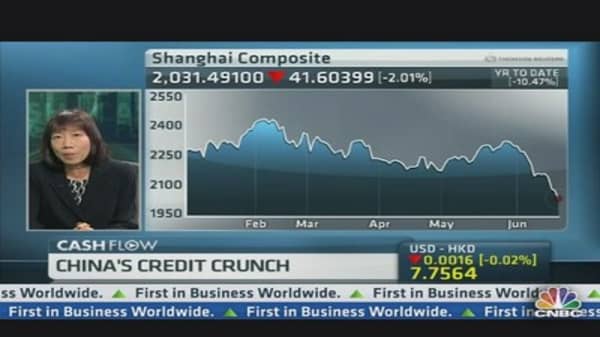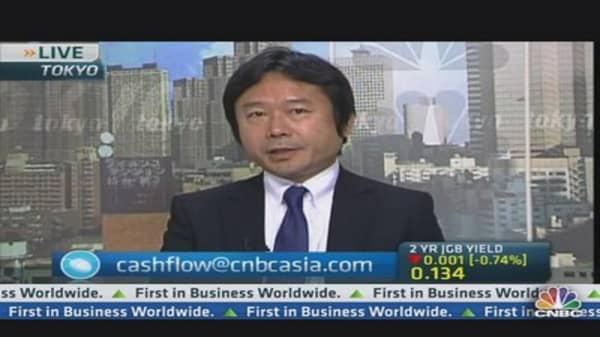The Shanghai Composite fell below the 2,000 mark on Monday to close at a fresh 2013 low with losses accelerating after comments from the central bank exacerbated fears that Beijing will not give into easing pressure.
In an effort to soothe fears of a credit crunch in China's banking system, the central bank stated on Monday that bank liquidity remains reasonable and that it has asked commercial lenders to strengthen cash management.
(Read More: China's Credit Squeeze Deals Fresh Blow to Stocks)
The People's Bank of China (PBOC) has restrained from injecting funds into money markets in an attempt to rein in excessive credit growth, which has seen interbank rates surge over the past two weeks, although they eased somewhat on Monday.




